The Yoruba Culture
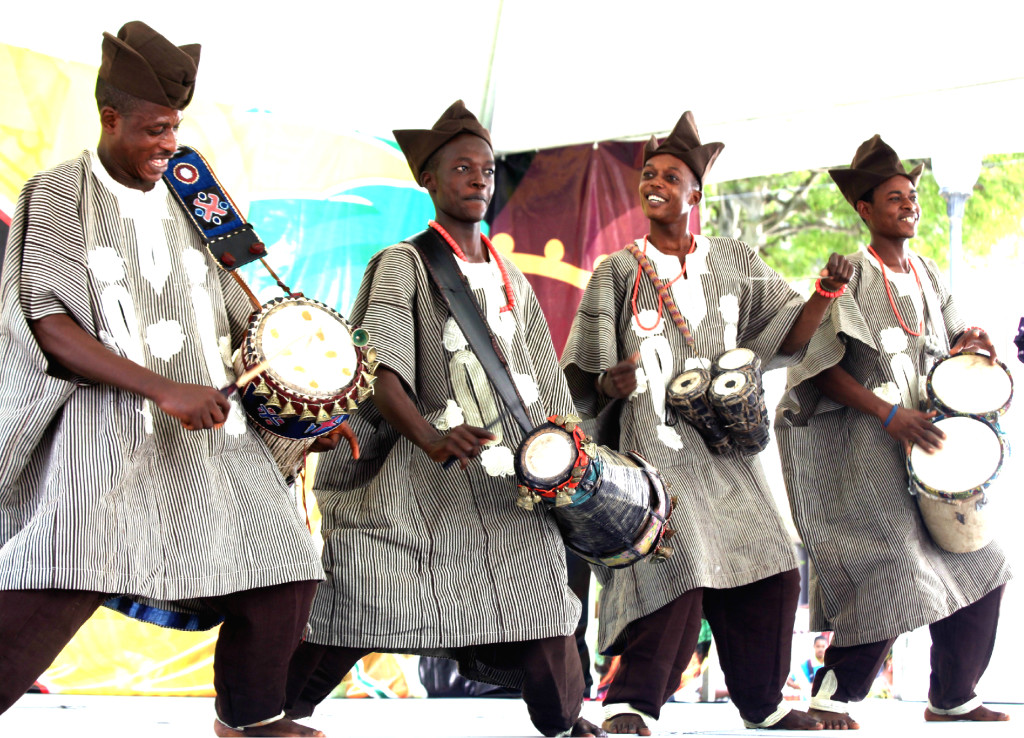
The Yoruba Culture: A Rich Tapestry of Tradition, Art, and Spirituality
The Yoruba culture is one of the most vibrant, influential, and enduring cultures in Africa. With a rich heritage deeply rooted in art, religion, language, and social systems, the Yoruba people have maintained their traditions while also adapting to the modern world. The culture extends beyond the borders of Nigeria into neighboring countries and the Americas, where Yoruba descendants continue to celebrate their heritage.
Language and Communication
The Yoruba language is a cornerstone of Yoruba identity. It is a tonal language, meaning that changes in pitch can alter the meaning of words. The language has multiple dialects spoken across southwestern Nigeria, Benin, and Togo. Despite these variations, mutual intelligibility remains strong among Yoruba speakers.
Proverbs, oral poetry, and storytelling are integral to Yoruba communication. Proverbs, in particular, are highly valued and used to succinctly convey wisdom and cultural values. The rich oral tradition preserves history, moral lessons, and family heritage, passed down through generations.
Religion and Spirituality
Yoruba religion and spirituality are foundational aspects of the culture. Traditional Yoruba beliefs center around the worship of deities known as Orishas, each representing natural forces, human virtues, or aspects of life. Key Orishas include:
- Shango: The god of thunder, lightning, and fire, symbolizing power and authority.
- Ogun: The god of iron and war, associated with strength, labor, and creativity.
- Osun: The goddess of fertility, love, and rivers, embodying beauty, wealth, and life.
- Orunmila: The deity of wisdom and divination, guiding human beings through fate and destiny.
One of the most significant elements of Yoruba spirituality is the Ifa divination system, which is used to interpret the will of the gods and offer guidance on life’s decisions. Babalawos (diviners) play an important role as spiritual guides and intermediaries between humans and the divine.
This religious tradition extends to the Americas through religions like Santería (Cuba), Candomblé (Brazil), and Vodou (Haiti), where Yoruba spiritual practices have been preserved and adapted.
Festivals and Ceremonies
Yoruba culture is rich in festivals and ceremonial traditions, many of which are tied to the worship of the Orishas and the celebration of significant life events.

Osun-Osogbo Festival: Held annually in Osogbo, Nigeria, this festival honors the river goddess Osun. It is a UNESCO-recognized cultural event that draws thousands of pilgrims seeking blessings and protection from the goddess.
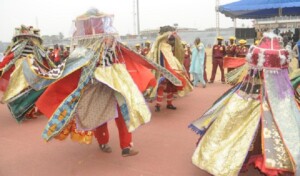
Egungun Festival: A masquerade festival that celebrates the ancestors, honoring the dead and connecting them with the living. The Egungun masqueraders, adorned in elaborate costumes, dance through the streets to embody ancestral spirits.
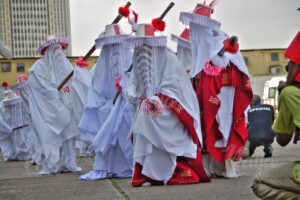
Eyo Festival: Unique to Lagos, this festival is linked to the royal families of Lagos Island and is often held to honor deceased kings. The iconic Eyo masqueraders, dressed in white robes and hats, parade through the city in a colorful display of Yoruba culture.
Life events such as births, marriages, and funerals are also marked with elaborate ceremonies. These ceremonies often involve music, dance, prayers, and sacrifices to ensure blessings, good fortune, and a prosperous future.
Art and Craftsmanship
Yoruba art is renowned for its sophistication and symbolic depth. The Yoruba are master sculptors, particularly known for their intricate wood carvings, bronze work, and terra cotta sculptures. These artworks often serve religious purposes, representing deities or ancestral spirits.
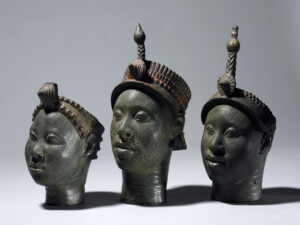
Ife Bronze Sculptures: The Yoruba are famous for the ancient bronze sculptures of Ile-Ife, considered some of the most advanced and realistic bronze works from pre-colonial Africa.
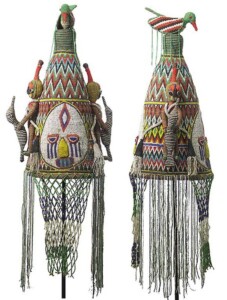
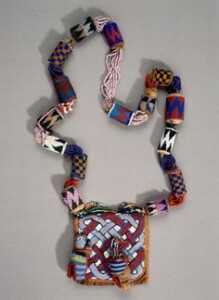
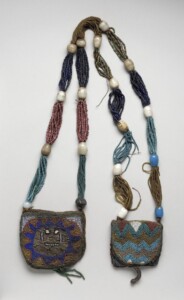
Beadwork and Adornment: Beadwork is a highly regarded craft in Yoruba culture. It symbolizes status and wealth. Beads are often used in the regalia of kings and priests and in elaborate jewelry.
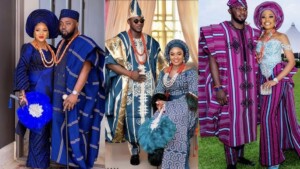
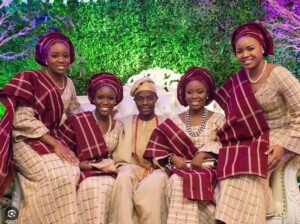
Textiles: Yoruba weavers produce the famous Aso Oke, a traditional hand-woven fabric worn during important occasions. The vibrant colors and patterns in Yoruba textiles reflect cultural symbolism and aesthetics.
Music and Dance
Music and dance are integral parts of Yoruba life, used in religious rituals, social events, and entertainment. Yoruba music is rich in rhythm, characterized by the use of drums such as the talking drum (Gangan), bàtá drums, and dùndún drums, each producing a range of tonal sounds that can imitate the spoken language.
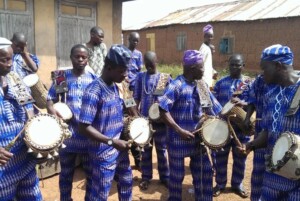
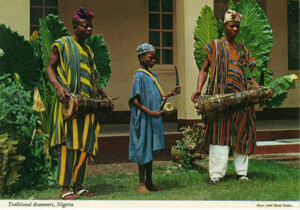
Talking Drum (Gangan): This drum can mimic the Yoruba language’s tonal inflections, making it an instrument used for communication in traditional settings.
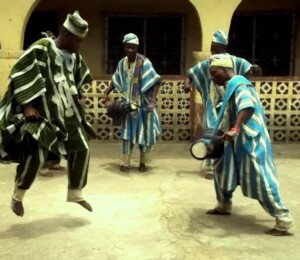
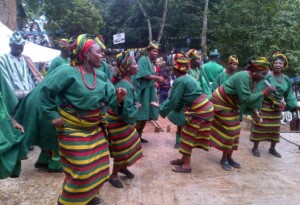
Dance: Yoruba dances vary depending on the context, from sacred dances performed during religious ceremonies to social dances performed during celebrations. Dance is often used as a form of storytelling, with movements and gestures conveying meaning and emotion.
Modern Yoruba musicians have made significant contributions to global music genres. Afrobeat, popularized by Fela Kuti, blends traditional Yoruba rhythms with jazz, funk, and highlife, becoming a defining genre of contemporary African music.
Social Structure and Kingship
Yoruba society is organized around the concept of family and community, with a strong sense of identity tied to lineage. At the head of the social structure is the oba (king), who plays a central role in the political, spiritual, and cultural life of the community.
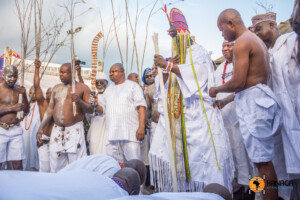
Yoruba kingship is traditionally hereditary, with the oba seen as a divine ruler, often considered a descendant of the gods. Kings like the Ooni of Ife, Alaafin of Oyo, and Oba of Lagos hold significant power and influence, not just within their immediate communities but across the Yoruba-speaking world.
Chiefs and Council of Elders assist the oba in governance, providing a balance of power and ensuring that decisions reflect the will of the community. The Yoruba political system, particularly in ancient kingdoms like Oyo, was highly sophisticated, with checks and balances, a council of state (Oyo Mesi), and military leadership (Aare Ona Kakanfo).
Family and Marriage
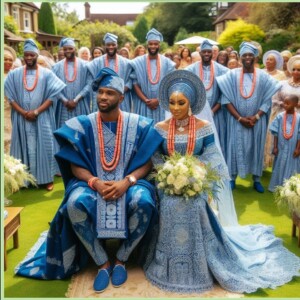
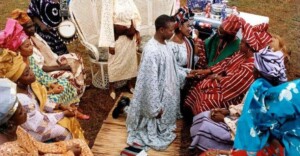
Family is central to Yoruba culture, with extended families living together or in close proximity. The Yoruba have a deeply communal way of life, where the success of an individual is often tied to the family’s success.
Marriage is a highly celebrated event, often involving elaborate traditional ceremonies that include the exchange of gifts between the bride’s and groom’s families. Polygamy is accepted in traditional Yoruba society, though modern practices may differ depending on personal or religious beliefs.
Education and Modern Influence
Education is highly valued in Yoruba culture, with a long tradition of learning, both formal and informal. The Yoruba were one of the first ethnic groups in Nigeria to embrace Western education, and today, many prominent Nigerian intellectuals, writers, and professionals are of Yoruba descent.
The literary achievements of Wole Soyinka, the first African Nobel Laureate in Literature, as well as the artistic contributions of figures like Nike Davies-Okundaye (renowned textile artist) and musicians like Fela Kuti and King Sunny Ade, reflect the continuing influence of Yoruba culture in the modern world.
Conclusion
The Yoruba culture is a vast and intricate tapestry of traditions, arts, spirituality, and social systems. From the worship of Orishas to the artistry of bronze sculptures and the rhythmic sounds of talking drums, the Yoruba people have made significant contributions to world culture. Their traditions, deeply rooted in community and heritage, continue to thrive today, both in Nigeria and in the global diaspora, reflecting the adaptability and resilience of the Yoruba people.